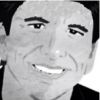10 Water Quality Books That Will Change How You See Water
Explore Water Quality Books recommended by Aaron M. Sanchez, Kirsten Gillibrand, and Peter Gleick, revealing vital insights and actions.





What if the water you drink, bathe in, or rely on every day isn't as safe as you believe? Water quality, a critical yet often overlooked issue, has profound impacts on health, environment, and community well-being. From Flint, Michigan's crisis to the sprawling water challenges of the American West, these stories demand urgent attention and action.
Experts like Aaron M. Sanchez, an ABC News radio personality deeply engaged in environmental reporting, and Kirsten Gillibrand, a U.S. Senator advocating for public health, have spotlighted key works that unpack these challenges. Peter Gleick, a climate and water scientist recognized by the National Academy of Sciences, offers perspectives that illuminate the scientific and policy complexities shaping water quality today.
While these expert-curated books provide proven frameworks and historical context, readers seeking content tailored to their specific water sources, regional challenges, or professional needs might consider creating a personalized Water Quality book that builds on these insights, accelerating your learning journey with targeted knowledge.
Recommended by Aaron M. Sanchez
ABC News Radio Personality and Host
“Very interesting discussion w/Candy J. Cooper and Marc Aronson on their latest book "Poisoned Water," and the #FlintWaterCrisis Get your copy here: ( #Michigan” (from X)
by Candy J Cooper, Marc Aronson··You?
by Candy J Cooper, Marc Aronson··You?
Candy J. Cooper, a Pulitzer Prize finalist with deep investigative journalism experience, crafts a revealing narrative about Flint's water crisis that goes beyond headlines. You learn not only about the toxic contamination that plagued Flint but also about the systemic racism and institutional failures behind it, drawing from interviews, legal documents, and news reports. This book is especially insightful if you want to understand how environmental injustice unfolds and how community activism challenges it. For anyone concerned with water safety, public health, or social justice, it offers a sobering, detailed case study of what happens when government neglects its citizens.
Recommended by Kirsten Gillibrand
U.S. Senator from New York
“.@SethMSiegel's new book “Troubled Water: What's Wrong with What We Drink” tells the haunting story of how America's drinking water came to be at risk. He’s a masterful storyteller with the powerful call to action to ensure safe drinking water for all.” (from X)
by Seth M. Siegel··You?
by Seth M. Siegel··You?
Seth M. Siegel challenges the conventional wisdom that America’s drinking water issues are isolated incidents by revealing widespread contamination affecting communities nationwide. Drawing on his legal and activist background, Siegel details how chemicals linked to serious health problems infiltrate tap water, often overlooked by government agencies and industry players. You’ll gain insight into the tangled web of political, corporate, and regulatory failures behind this crisis, alongside stories of individuals who have successfully advocated for change. This book suits anyone concerned about public health, environmental policy, or the safety of their own water supply, offering a clear-eyed look at what’s at stake and what can be done.
by TailoredRead AI·
by TailoredRead AI·
This personalized book explores detailed strategies for maintaining safe water quality and effective treatment practices, tailored specifically to your background and goals. It reveals the scientific principles behind water contamination, various treatment methods, and quality testing techniques, matching your interests to provide a focused learning journey. By addressing your unique challenges and objectives, this tailored guide examines water safety from source to tap, including contamination prevention and regulatory considerations. The book blends expert knowledge with your specific context, making complex water quality topics approachable and relevant. It offers a coherent pathway through vital concepts, helping you develop a deeper understanding of water treatment’s lasting impact on health and environment.
Recommended by Christopher Levinson
Founder Brain Injury Litigation Network, Environmental Advocate
“A Must Read!! - New Book from Erin Brockovich Reveals The Dire Situation of the US Water Crisis @ErinBrockovich #Brockovich” (from X)
by Erin Brockovich··You?
Erin Brockovich, known for her relentless advocacy in environmental justice, channels decades of experience confronting water contamination into this book. She dissects the tangled web of corporate negligence, fraudulent science, and regulatory failures that threaten America's water safety. You’ll gain insight into specific community cases, such as the water overhaul in Poughkeepsie, New York, and grassroots legislative victories like the ammonia ban in Hannibal, Missouri. This book suits anyone eager to understand the mechanics behind water quality crises and how individual activism can prompt meaningful change, though it demands readers ready to engage beyond passive awareness.
Recommended by Peter Gleick
Climate and water scientist; MacArthur Fellow
“Life expectancy in the US rose during the 1900s with improvements in public health, diet, and medicine. But take a look at the impact of the 1918 influenza outbreak. (Graph from @CaptDocMike's great book "The Chlorine Revolution")” (from X)
by Michael J. McGuire··You?
After analyzing early 20th-century public health transformations, Michael J. McGuire found that the introduction of chlorine to disinfect municipal water radically reshaped urban safety. The book details the pioneering efforts of George W. Fuller and Dr. John L. Leal, focusing on the 1908 Jersey City water treatment breakthrough and its ripple effects on disease prevention. You’ll gain insight into the technical challenges overcome and the public health implications that followed, including detailed accounts of chlorine’s role in reducing outbreaks like the 1918 influenza. This narrative suits anyone invested in the technical, historical, and societal aspects of water safety and public health infrastructure.
Recommended by Paul Kedrosky
Investor at SK Ventures, former academic
“@DrMJoyner Indeed. It's just remarkable how prescient that book remains.” (from X)
When Marc Reisner penned Cadillac Desert, he drew on over a decade of investigative journalism to reveal how the American West's water supply has been shaped by political battles, engineering feats, and ecological consequences. You learn about the intricate power struggles between government agencies like the Bureau of Reclamation and the U.S. Army Corps of Engineers, and how their decisions have transformed—and often threatened—the region's water sustainability. The book’s chapters detail everything from early settlers' ambitions to modern-day drought challenges, offering you a deep understanding of water resource management and its social impact. This is especially relevant if you want to grasp the complexities behind water policy and environmental stewardship in arid regions.
This personalized book offers a targeted exploration of water treatment system optimization, designed to match your background and specific goals. It focuses on practical steps to improve water treatment efficiency within one month, guiding you through key concepts of plant operations, process control, and system maintenance. By tailoring content to your interests, it reveals how to monitor water quality indicators, troubleshoot common issues, and apply treatment adjustments effectively. This tailored approach ensures you engage with material relevant to your experience level and operational context, making complex technical knowledge accessible and actionable. Through this focused journey, you gain insights to enhance your plant's performance and ensure safer water supply.
by Project Director Kenneth D. Kerri··You?
by Project Director Kenneth D. Kerri··You?
When Kenneth D. Kerri, a project director at California State University, Sacramento, developed this training program, he aimed to bridge the gap between theoretical knowledge and practical skills needed for water treatment plant operation. This book systematically guides you through the operation and maintenance of drinking and wastewater facilities, covering essential procedures, equipment handling, and regulatory compliance. Chapters delve into real-world scenarios such as monitoring water quality parameters and managing treatment processes to ensure safe water delivery. It's particularly suited for aspiring and practicing water treatment operators seeking a solid foundation grounded in industry standards and university-backed expertise.
by John C. Crittenden, R. Rhodes Trussell, David W. Hand, Kerry J. Howe, George Tchobanoglous··You?
by John C. Crittenden, R. Rhodes Trussell, David W. Hand, Kerry J. Howe, George Tchobanoglous··You?
John C. Crittenden's extensive experience as Director of the Brook Byers Institute for Sustainable Systems and his role at Georgia Tech shape this authoritative volume on water treatment engineering. You gain detailed insights into water chemistry, microbiology, and the latest treatment technologies like membrane filtration and advanced oxidation. The book also tackles emerging challenges such as pharmaceutical contaminants and residual management, offering practical design data and case studies that bring theory into practice. If you’re involved in designing or operating water treatment facilities or studying environmental engineering, this text offers concrete frameworks and updated regulatory context without unnecessary jargon.
by Nicholas G. Pizzi··You?
by Nicholas G. Pizzi··You?
While working as vice-president at EE&T, Inc., Nicholas G. Pizzi drew from nearly four decades in municipal water treatment to craft this handbook aimed at operators who manage daily water quality and supply challenges. You gain detailed knowledge of water treatment processes such as coagulation, filtration, and disinfection alongside regulatory compliance and plant safety protocols. The book’s chapters on process control and instrumentation also equip you to optimize plant performance and maintain consistent water standards. If you work in water treatment operations or oversee municipal water systems, this reference clarifies both foundational and advanced practices essential for reliable drinking water delivery.
by Chris Jones··You?
Chris Jones's extensive experience as a research engineer and his previous roles at Des Moines Water Works and the Iowa Soybean Association inform this detailed examination of the environmental impact of intensive agriculture in Iowa. You gain a clear understanding of how concentrated crop and livestock production affects water quality, including the prevalence of nitrate contamination in drinking water and the degradation of streams. The book unpacks complex interactions between agriculture, pollution, and policy, offering nuanced insights into the challenges of balancing productivity with environmental stewardship. If you are concerned about agricultural practices and their consequences on regional water systems, this book provides a well-grounded perspective, though it is less suited for readers seeking technical water treatment methods.
Recommended by Peter Gleick
Climate/water scientist; US National Academy of Sciences
“@debcha @Katchinoff The book "Water for Gotham" is the best history of NYC's #water story.” (from X)
by Gerard T. Koeppel·You?
by Gerard T. Koeppel·You?
What happens when historical research meets urban water challenges? Gerard T. Koeppel’s book charts New York City's fight for clean water, revealing how shallow wells gave way to the groundbreaking Croton Aqueduct in 1842. You’ll find detailed accounts of key figures like Christopher Colles and Aaron Burr, and how political intrigue shaped the city’s water future. Koeppel frames water quality as inseparable from civic leadership and urban planning, offering insights into infrastructure development and resource management. This is a story not just about pipes and aqueducts, but about the vision and determination behind a city's survival and growth.
Get Your Personal Water Quality Guide Fast ✨
Stop guessing—get tailored Water Quality insights that fit your exact needs without reading dozens of books.
Trusted by water quality experts and professionals worldwide
Conclusion
The collection of these 10 books weaves together themes of environmental justice, public health risks, technical treatment advances, and the political battles over water resources. They reveal how water quality is not just a scientific issue but a social and political one, demanding engagement from various sectors.
If you're grappling with water safety concerns in your community, starting with "Poisoned Water" or "Troubled Water" offers compelling, human-centered narratives. For professionals in water treatment, "Water Treatment Plant Operation" and "MWH's Water Treatment" deliver grounded, actionable knowledge. Meanwhile, those interested in policy and history will find "Cadillac Desert" and "Water for Gotham" illuminating.
Alternatively, you can create a personalized Water Quality book to bridge the gap between general principles and your specific situation. These carefully selected books can help you accelerate your learning journey and deepen your understanding of water quality's vital role in society.
Frequently Asked Questions
I'm overwhelmed by choice – which book should I start with?
Start with "Poisoned Water" for a gripping account of a major water crisis, or "Water Treatment Plant Operation" if you want practical knowledge about managing water systems.
Are these books too advanced for someone new to Water Quality?
Not at all—many books, like "Troubled Water," are accessible while offering depth. Technical books such as "Water Treatment Operator Training Handbook" also support beginners with clear explanations.
What's the best order to read these books?
Begin with narrative-driven books to understand issues, like "Superman's Not Coming," then proceed to technical guides such as "MWH's Water Treatment" for practical insights.
Do I really need to read all of these, or can I just pick one?
You can pick based on your interest—choose community-focused books for social impact or technical manuals for operational skills. Each offers unique value.
Which books focus more on theory vs. practical application?
"Cadillac Desert" and "Water for Gotham" explore theory and history, while "Water Treatment Plant Operation" and "Water Treatment Operator Training Handbook" emphasize practical application.
How can I get Water Quality knowledge tailored to my specific needs?
Yes, while these expert books provide solid foundations, you can create a personalized Water Quality book that blends expert insights with your unique goals and circumstances for faster, targeted learning.
📚 Love this book list?
Help fellow book lovers discover great books, share this curated list with others!
Related Articles You May Like
Explore more curated book recommendations









